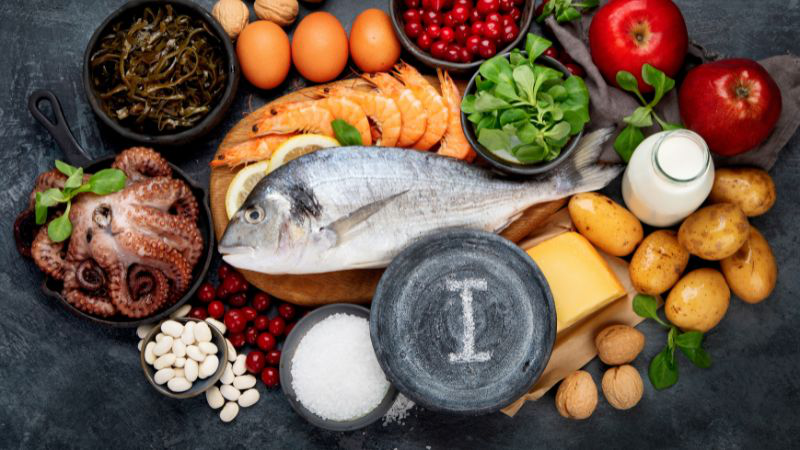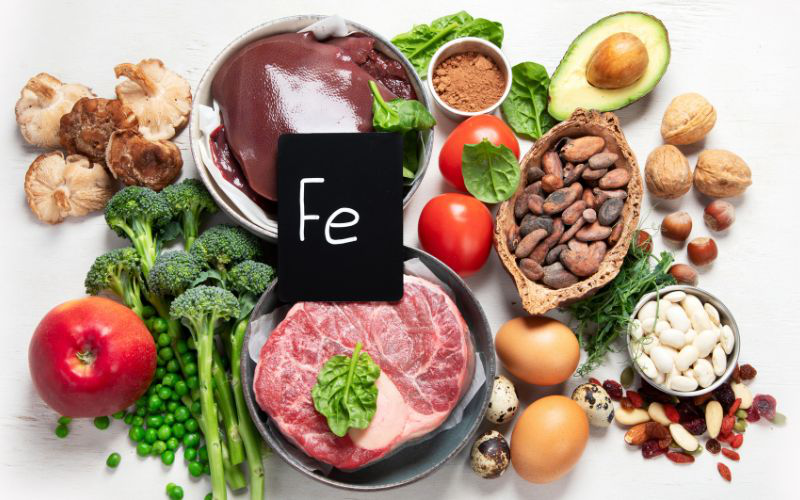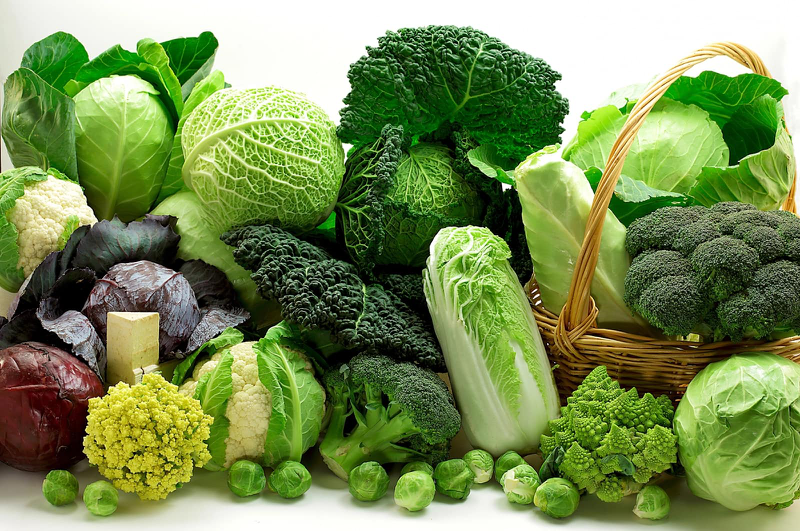The thyroid is a small endocrine gland located in the neck that plays an important role in regulating the body’s metabolic functions. For people with thyroid problems such as hypothyroidism or hyperthyroidism, diet plays an important role in supporting and maintaining thyroid health. The following article will provide some suggestions for diets for people with thyroid disease to help improve health and reduce uncomfortable symptoms.
Food groups needed in the diet for people with thyroid disease
A suitable diet not only maintains but also protects the health of the thyroid gland. Below are essential food groups that contribute to supporting thyroid function:
Iodine-rich foods
Iodine plays a key role in the production of thyroid hormones, which help regulate metabolism. However, because the body does not produce iodine on its own, you need to supplement it from foods such as seaweed, fish, eggs, and liver. A balanced iodine diet helps prevent both hypothyroidism and hyperthyroidism. The recommended daily allowance for adults is 150mcg, and for pregnant women it is 220mcg.

Iodine plays a key role in the production of thyroid hormones.
Foods Rich in Selenium
Selenium is a mineral that supports both the thyroid and the immune system. Supplementing with selenium can help prevent iodine deficiency and reduce the risk of hypothyroidism. Add foods like salmon and beans to your diet to naturally increase selenium.
Foods Rich in Zinc
Zinc contributes to the production of thyroid hormones, which help keep your thyroid functioning properly. Zinc deficiency can cause hypothyroidism, so to support thyroid health, include zinc-rich foods like whole grains, cashews, pumpkin seeds, and dark green vegetables in your diet.
Foods Rich in Vitamin D
Vitamin D is not only important for bones, but it also affects thyroid health. Vitamin D deficiency can increase the risk of autoimmune thyroid disease. You can get vitamin D from sunlight and food sources like salmon, mushrooms, and dairy products.
Iron-Rich Foods
Iron is closely linked to thyroid function. Hypothyroidism can cause iron deficiency anemia, while adequate iron intake supports thyroid hormone production. Foods rich in iron include red meat, beans, whole grains, and dark green leafy vegetables.

Iron should be supplemented in the diet of people with thyroid disease.
Lean Protein Foods
A diet low in protein can cause thyroid dysfunction, leading to symptoms like fatigue and weight gain. Getting protein from low-fat sources like lean meat, tofu, and low-fat dairy can help keep your thyroid functioning properly.
Omega-3 Foods
Omega-3s not only reduce inflammation, but also aid in thyroid hormone production. Research shows that reducing inflammation plays an important role in preventing thyroid dysfunction. Add fatty fish like salmon and mackerel, or flax and chia seeds to maintain thyroid health.
A varied and balanced diet that focuses on the above food groups will help you maintain a healthy thyroid.
Foods to Limit in Your Thyroid Diet
Cruciform Vegetables
Cruciform vegetables such as cabbage, kale, collard greens, and cauliflower provide plenty of fiber, vitamins, and minerals with low calories, helping to maintain health without gaining weight. In particular, dark green vegetables in this group also have anti-inflammatory properties, helping to support thyroid health.
However, because cruciferous vegetables contain goitrogens – compounds that can interfere with iodine absorption – people with thyroid problems, especially hypothyroidism, should limit the amount of these vegetables in their diet.

People with thyroid problems should limit their intake of cruciferous vegetables.
Soybeans
While beans are beneficial for the thyroid, soybeans contain goitrogens, which can reduce the body’s ability to absorb iodine. Therefore, eating too much soy or soy products like soy milk and tofu can affect thyroid function, especially in people who already have hypothyroidism or iodine deficiency.
Foods containing gluten
Gluten, a protein found in wheat and barley, can cause an immune response in some people, increasing the level of antibodies that attack the thyroid. Although there is still debate about the effects of gluten on the thyroid, people with thyroid problems may consider reducing their gluten intake to keep their diet healthy and support thyroid health.
Foods containing caffeine
A small amount of caffeine from coffee may reduce the risk of hypothyroidism, however, consuming too much caffeine can make fatigue worse, especially in people with hypothyroidism. Therefore, you should only drink coffee or caffeinated beverages in moderation to avoid negative effects on thyroid function.
Processed foods and fast foods
Fast foods and processed foods are often high in salt and fat. The high sodium content in these foods can aggravate hypothyroidism. In addition, saturated fats in fast foods also interfere with the thyroid’s ability to produce hormones and reduce the effectiveness of hypothyroidism medications in people undergoing treatment.

People with thyroid disease should avoid processed foods and fast foods.
A healthy diet and lifestyle can have a positive impact on thyroid health. However, patients should consult their doctor to develop a thyroid diet that is appropriate for their health condition. Maintaining a scientific and healthy diet not only helps improve the symptoms of thyroid disease but also brings good health to the entire body.





